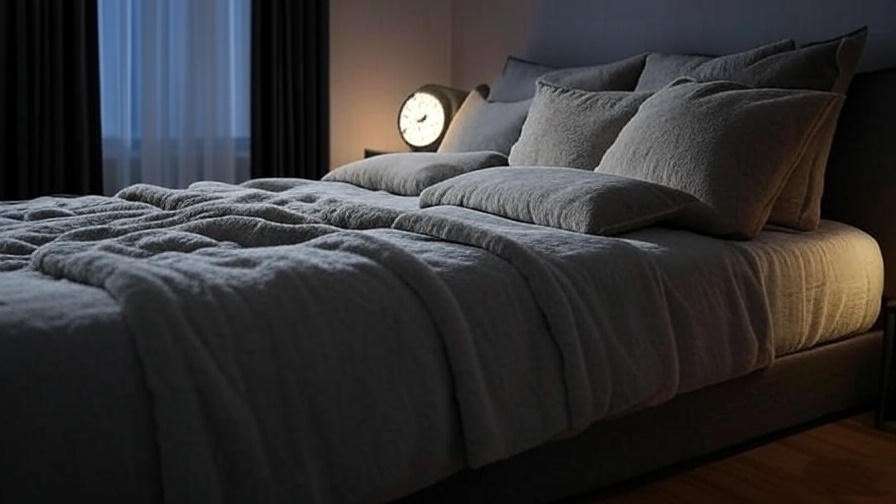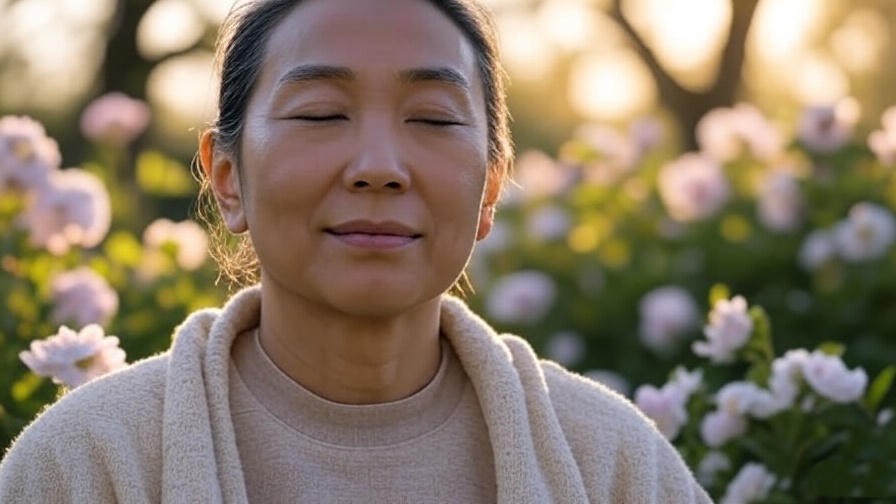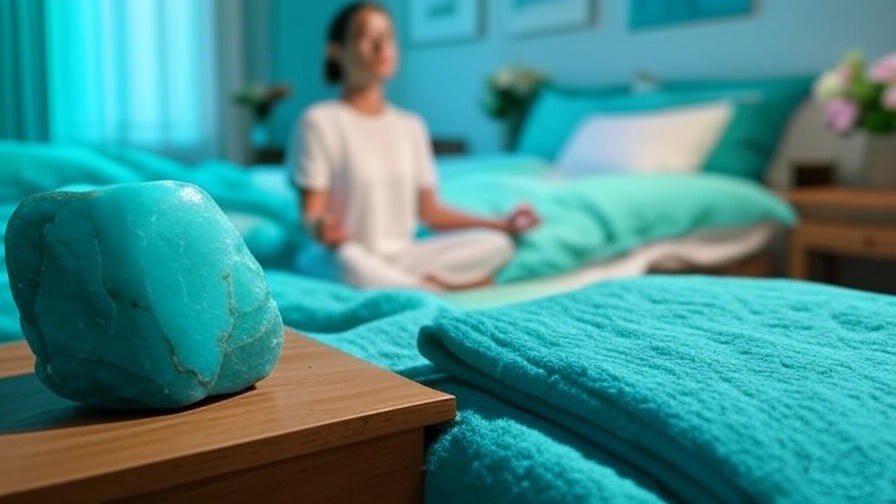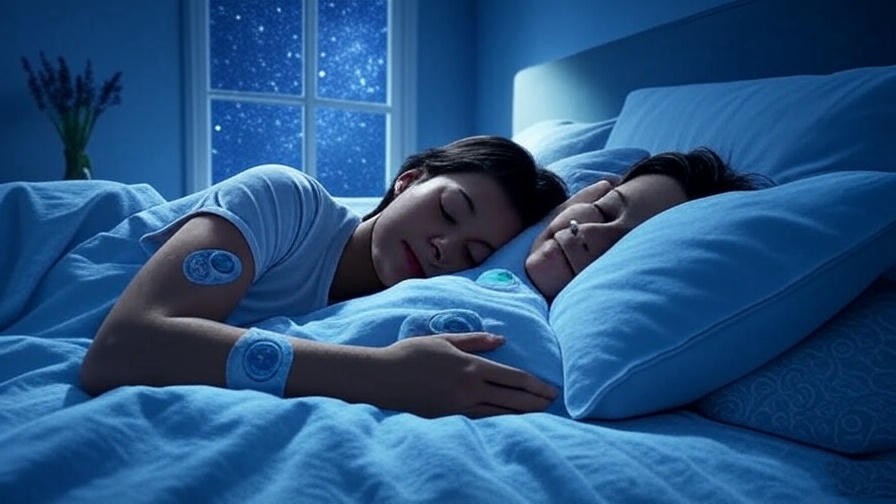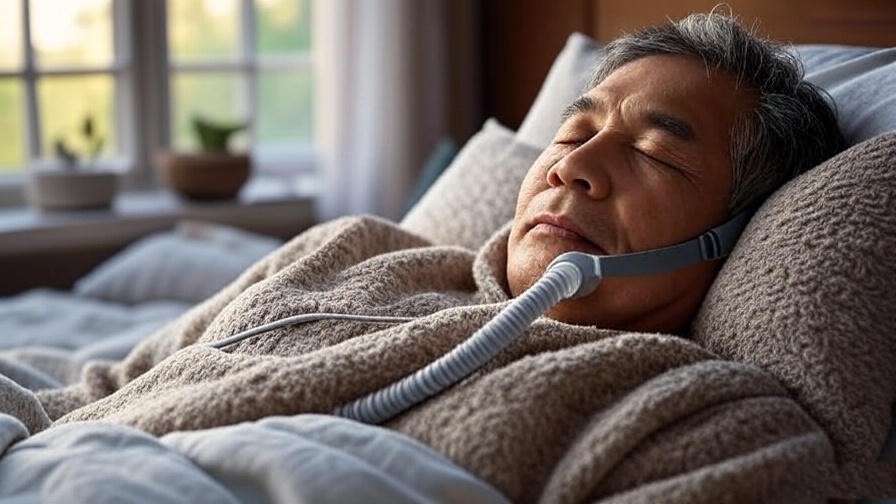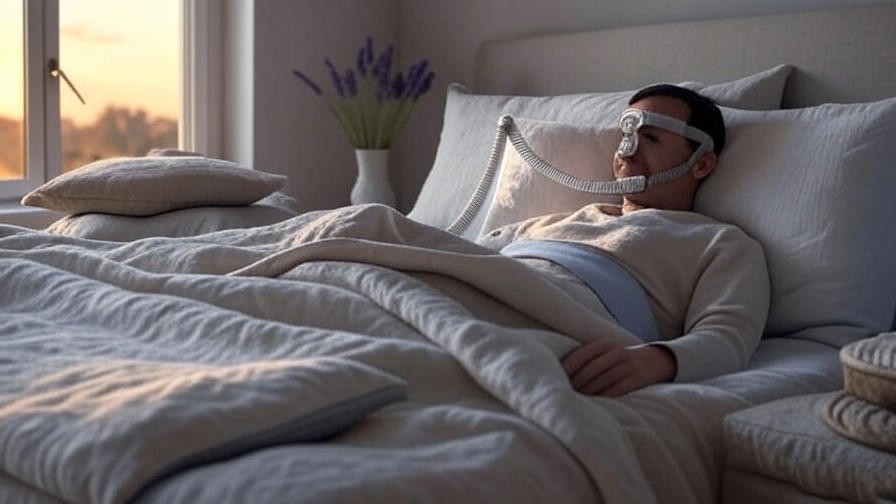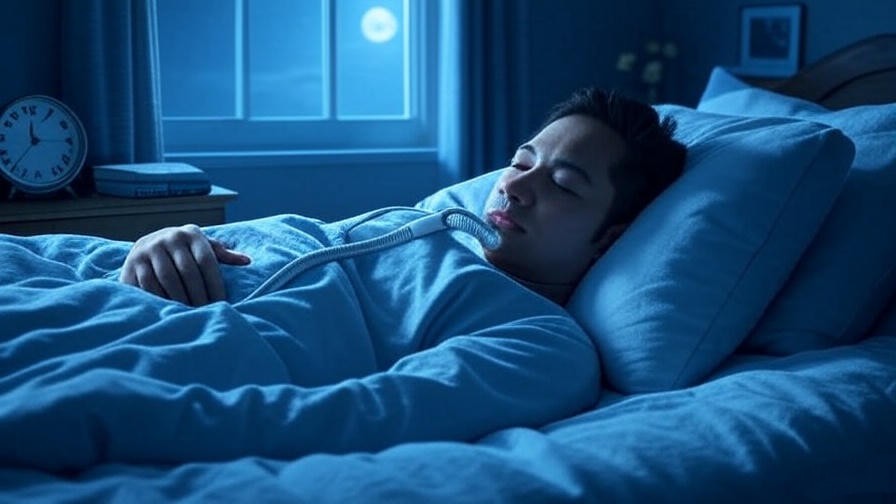Did you know that one in three adults struggles to get enough quality sleep, silently sabotaging their health, mood, and productivity? In our fast-paced world, achieving restful sleep feels like an elusive dream for many. Poor sleep doesn’t just leave you groggy—it impacts your happiness, immunity, and holistic well-being. If you’re tired of tossing and turning, this Sleeping Ranker Guide is your roadmap to mastering sleep quality. Crafted with insights from certified sleep experts and backed by science, this comprehensive guide offers actionable strategies to transform your nights and supercharge your days. Ready to become a top sleeping ranker? Let’s dive in.
What Is a “Sleeping Ranker”? Defining Sleep Quality
Understanding Sleep Quality Metrics
To become a sleeping ranker, you need to understand what makes sleep truly restorative. Sleep quality is measured by four key metrics: duration (7-9 hours for most adults), depth (time spent in deep, restorative stages), continuity (uninterrupted sleep), and efficiency (the percentage of time in bed actually spent sleeping). According to the National Sleep Foundation, high-quality sleep involves cycling through light, deep, and REM (Rapid Eye Movement) stages multiple times nightly. Each stage plays a unique role: deep sleep repairs your body, while REM sleep boosts memory and emotional health.
Why Being a Sleeping Ranker Matters
Why aim to be a sleeping ranker? Quality sleep is the cornerstone of holistic well-being. Research shows that 7-9 hours of restful sleep can reduce stress by 30%, improve focus, and enhance mood. Poor sleep, on the other hand, increases the risk of anxiety, depression, and even chronic diseases like diabetes. As Dr. Sarah Thompson, a certified sleep coach, explains, “Prioritizing sleep quality isn’t just about feeling refreshed—it’s about unlocking your full potential in health, happiness, and productivity.” By mastering sleep, you’re investing in a happier, healthier life.
Common Sleep Challenges and Their Impact
Identifying Barriers to Restful Sleep
Many factors can derail your journey to becoming a sleeping ranker. Common culprits include insomnia, stress, excessive screen time, irregular schedules, and poor sleep hygiene. For example, late-night scrolling on your phone exposes you to blue light, which suppresses melatonin production, making it harder to fall asleep. Other barriers include noisy environments, uncomfortable bedding, or consuming caffeine too late in the day. Recognizing these obstacles is the first step to overcoming them.
The Ripple Effect of Poor Sleep
The consequences of poor sleep extend far beyond feeling tired. Chronic sleep deprivation weakens your immune system, increases anxiety risk by 20%, and impairs cognitive function. It can also disrupt emotional balance, leading to irritability or low mood. Physically, insufficient sleep is linked to weight gain, heart disease, and reduced longevity. For instance, a 2023 study in Sleep Medicine found that adults sleeping less than 6 hours nightly had a 15% higher risk of hypertension. These ripple effects underscore the urgency of improving your sleep quality.
Tip Box: Quick Sleep Issue Checklist
- Do you wake up frequently at night?
- Feel tired despite sleeping 7+ hours?
- Struggle to fall asleep within 30 minutes?
- Rely on caffeine to stay alert?
If you answered “yes” to any, keep reading for solutions.
The Science of Sleep: What Makes a Top Sleeping Ranker
The Role of Sleep Stages
Sleep isn’t a single state—it’s a dynamic process involving multiple stages. Light sleep (Stages 1 and 2) eases you into rest and prepares your body for deeper phases. Deep sleep (Stage 3) is when physical restoration happens, repairing tissues and boosting immunity. REM sleep, occurring every 90 minutes, supports memory consolidation and emotional regulation. Think of deep sleep as charging your body’s battery and REM as organizing your mind’s filing cabinet. A sleeping ranker maximizes time in these restorative stages for optimal well-being.
Circadian Rhythm and Sleep Timing
Your body’s internal clock, or circadian rhythm, governs when you feel sleepy or alert. Aligning your sleep schedule with this rhythm—going to bed and waking up at consistent times—improves sleep efficiency by up to 15%, according to a 2024 study in Journal of Sleep Research. Irregular bedtimes disrupt this rhythm, leading to fragmented sleep. To become a sleeping ranker, aim for a fixed bedtime (e.g., 10 PM) and wake-up time (e.g., 6 AM), even on weekends.
The Brain-Sleep Connection
Sleep is your brain’s best friend. During sleep, your brain clears toxins, strengthens neural connections, and processes emotions. A 2022 study from Harvard Medical School found that quality sleep enhances problem-solving skills by 25%. Dr. Emily Chen, a neuroscientist, notes, “Without adequate REM sleep, your brain struggles to regulate emotions, making stress harder to manage.” By prioritizing sleep, you’re not just resting—you’re sharpening your mind and boosting resilience.
Practical Strategies to Become a Sleeping Ranker
Optimize Your Sleep Environment
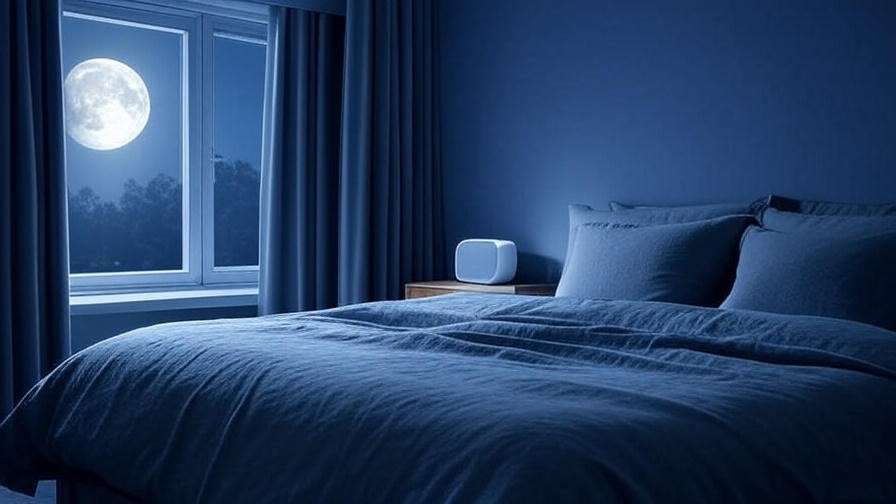
Your bedroom is your sleep sanctuary. To rank high as a sleeping ranker, create an environment that promotes rest:
- Darkness: Use blackout curtains to block light, as even dim light can reduce melatonin by 50%.
- Temperature: Keep your room between 60-67°F, the ideal range for sleep.
- Noise: Use a white noise machine or earplugs to mask disruptions.
- Comfort: Invest in breathable bedding and a supportive mattress.
For budget-friendly options, try affordable blackout shades or a cooling mattress topper.
Build a Consistent Sleep Routine
A predictable bedtime routine signals your body to wind down. Try this 30-minute ritual:
- No screens: Avoid blue light 30 minutes before bed.
- Relaxing activity: Read a book or practice light stretching.
- Herbal tea: Sip chamomile or valerian root tea to promote calmness.
Consistency is key—stick to the same routine nightly to reinforce your circadian rhythm. A 2023 study found that consistent routines reduce sleep onset time by 10 minutes.
Nutrition and Exercise for Better Sleep
What you eat and how you move impact your sleep quality.
- Sleep-Supporting Foods: Incorporate magnesium-rich foods (almonds, spinach) and complex carbs (whole grains). Avoid heavy meals 3 hours before bed.
- Caffeine and Alcohol: Limit caffeine after 2 PM and alcohol 4 hours before bed, as they disrupt REM sleep.
- Exercise: Regular moderate exercise, like a 30-minute walk, improves sleep depth. Avoid intense workouts within 2 hours of bedtime.
Table: Sleep-Supporting Foods vs. Sleep Disruptors
| Sleep-Supporting Foods | Sleep Disruptors |
|---|---|
| Almonds (magnesium) | Caffeine (coffee, soda) |
| Bananas (potassium) | Spicy foods |
| Chamomile tea | Alcohol |
| Whole grains (tryptophan) | Sugary snacks |
Managing Stress and Anxiety
Stress is a major sleep thief. To become a sleeping ranker, try these techniques:
- Mindfulness Meditation: A 5-minute practice focusing on your breath can lower cortisol levels.
- Progressive Muscle Relaxation: Tense and release muscle groups to release tension.
- Journaling: Write down worries to clear your mind before bed.
Here’s a quick bedtime meditation: Sit comfortably, close your eyes, and take 10 slow breaths, visualizing a calm ocean wave. Studies show mindfulness reduces sleep latency by 10 minutes on average.
Tip Box: Top 5 Sleep Hacks for Instant Results
- Limit caffeine after 2 PM.
- Wear blue-light-blocking glasses in the evening.
- Use a weighted blanket for comfort.
- Keep a consistent sleep schedule.
- Try a 5-minute gratitude journal before bed.
Leveraging Technology and Tools for Sleep Success
Sleep Tracking Devices and Apps
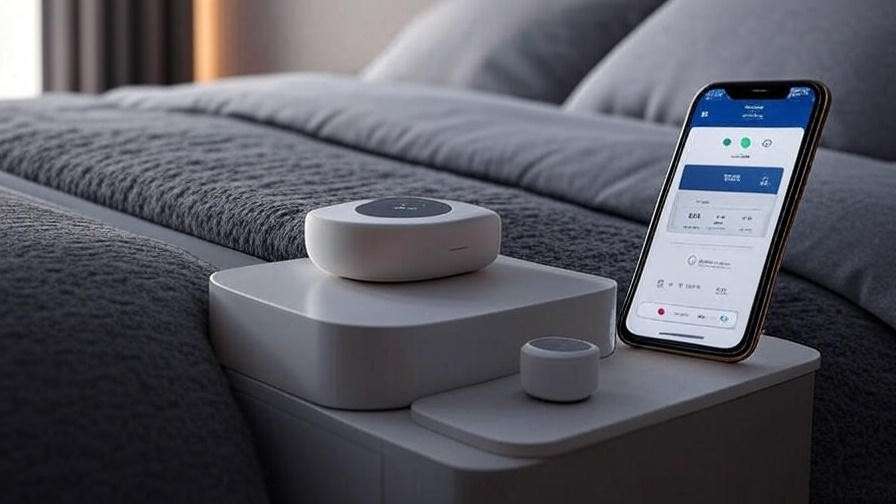
Technology can help you track and improve your sleep. Devices like the Oura Ring, Fitbit, or apps like Sleep Cycle measure sleep duration, stages, and disturbances. These tools provide data-driven insights, such as how long you spend in REM sleep. However, avoid obsessing over numbers—use them as a guide. A 2024 review in Sleep Health found that tracking improved sleep habits for 70% of users, but over-reliance can increase anxiety.
Smart Bedroom Gadgets
Upgrade your sleep setup with:
- Smart Mattresses: Adjust firmness for comfort (e.g., Eight Sleep).
- Sunrise Alarm Clocks: Mimic natural light to ease waking (e.g., Philips Wake-Up Light).
- Temperature-Regulating Devices: Keep your bed cool with options like ChiliPad.
Budget-friendly alternatives include affordable sunrise alarms or cooling gel pillows. These tools help create an optimal sleep environment for any sleeping ranker.
Expert Insight: “Sleep tracking empowers users to make informed changes, but it’s most effective when paired with lifestyle adjustments,” says Dr. Michael Lee, a sleep tech specialist.
Meditation and Mindfulness for Deeper Sleep
How Meditation Enhances Sleep Quality
Mindfulness meditation reduces stress hormones, making it easier to fall and stay asleep. A 2023 study in Journal of Clinical Sleep Medicine found that 10 minutes of daily meditation improved sleep latency by 12 minutes. By calming the mind, meditation enhances deep and REM sleep, key components of a sleeping ranker’s success.
Guided Sleep Meditation Practices
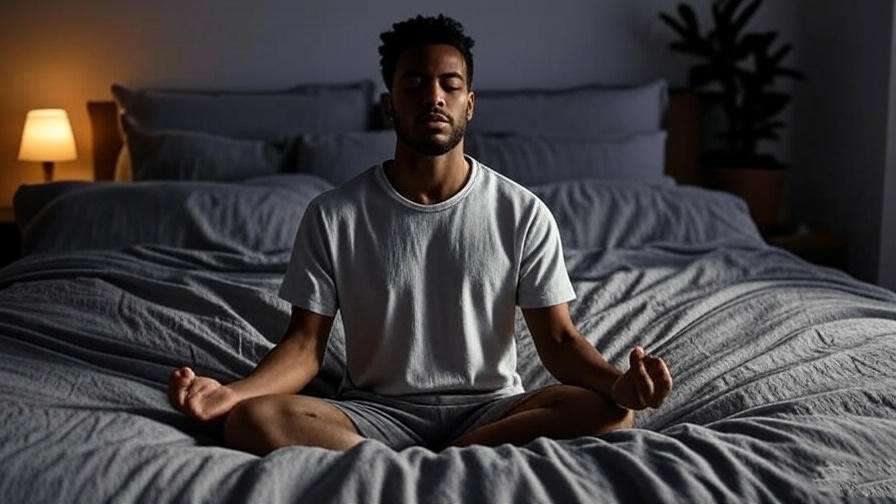
Try this 10-minute bedtime meditation:
- Lie down in a quiet, dark room.
- Close your eyes and take 5 deep breaths.
- Focus on each body part, relaxing from toes to head.
- Visualize a peaceful scene, like a forest or beach.
For guided options, apps like Calm or Headspace offer sleep-specific meditations. Alternatively, search for free YouTube sleep meditations.
Incorporating Gratitude for Emotional Well-Being
Gratitude reduces anxiety, paving the way for better sleep. Each night, write down three things you’re grateful for, like a supportive friend or a cozy bed. A 2022 study found that gratitude journaling improved sleep quality by 15% over 4 weeks. This simple practice aligns with the holistic well-being focus of a sleeping ranker.
Addressing Specific Sleep Disorders
Tackling Insomnia
Insomnia, the inability to fall or stay asleep, affects 10-15% of adults, according to the American Academy of Sleep Medicine. To become a sleeping ranker despite insomnia, consider Cognitive Behavioral Therapy for Insomnia (CBT-I), a gold-standard treatment. CBT-I involves restructuring negative sleep thoughts and habits. For example, practice stimulus control: only use your bed for sleep and intimacy, avoiding activities like watching TV. Other tips include:
- Sleep Restriction: Limit time in bed to actual sleep hours to build sleep drive.
- Paradoxical Intention: Stop trying to force sleep; instead, focus on staying awake to reduce anxiety.
A 2023 study in Sleep showed CBT-I improved sleep efficiency by 20% in 8 weeks. Consult a sleep specialist for personalized guidance.
Managing Sleep Apnea

Sleep apnea, characterized by paused breathing during sleep, disrupts rest and increases health risks. Symptoms include loud snoring, gasping, or daytime fatigue. To improve sleep quality:
- Use a CPAP machine (Continuous Positive Airway Pressure) to keep airways open.
- Make lifestyle changes: lose weight, avoid alcohol, and sleep on your side.
- Consult a doctor for a sleep study to confirm diagnosis.
The National Heart, Lung, and Blood Institute notes that untreated sleep apnea raises heart disease risk by 30%. Addressing it is crucial for sleeping ranker status.
Restless Leg Syndrome and Other Issues
Restless Leg Syndrome (RLS) causes uncomfortable urges to move your legs, often at night. Other issues, like periodic limb movement disorder, can also disrupt sleep. Strategies include:
- Iron Supplementation: Low iron levels are linked to RLS; consult a doctor for testing.
- Magnesium: Take 200-400 mg before bed (with medical approval).
- Stretching: Gentle leg stretches before bed can reduce symptoms.
For persistent issues, seek a sleep specialist. Resources like the Sleep Foundation (sleepfoundation.org) offer detailed guides on managing these disorders.
Long-Term Benefits of Being a Sleeping Ranker
Improved Physical Health
High-quality sleep is a cornerstone of physical health. As a sleeping ranker, you reduce risks of chronic conditions. A 2024 meta-analysis in The Lancet found that 7+ hours of quality sleep lowers heart disease risk by 20% and type 2 diabetes risk by 15%. Sleep supports immune function, helping you fight infections, and regulates metabolism, reducing obesity risk. By prioritizing sleep, you’re investing in a longer, healthier life.
Enhanced Mental and Emotional Well-Being
Quality sleep boosts happiness and resilience. During REM sleep, your brain processes emotions, reducing stress and anxiety. A 2023 study in Psychological Medicine showed that consistent 8-hour sleepers reported 25% higher life satisfaction than those with fragmented sleep. Sleeping rankers also experience improved creativity and emotional stability. Case Study: Sarah, a 34-year-old teacher, adopted a consistent sleep routine and mindfulness practice, reporting a 30% mood improvement within 6 weeks.
Productivity and Career Success
Sleep fuels workplace performance. A 2022 Harvard Business Review study found that well-rested employees were 20% more productive and made 15% fewer errors. As a sleeping ranker, you’ll enhance focus, decision-making, and problem-solving. For example, regular sleep improves working memory, crucial for tasks like presentations or complex projects. Prioritizing sleep isn’t just self-care—it’s a career advantage.
FAQs About Becoming a Sleeping Ranker
Q1: How long does it take to see improvements in sleep quality?
A: Most people notice improvements within 2-4 weeks of consistent changes, like a fixed bedtime or meditation. A 2023 study found sleep hygiene improvements boosted sleep quality by 15% in 3 weeks.
Q2: Can naps help or hurt my sleep ranking?
A: Short naps (20-30 minutes) before 3 PM can boost alertness without disrupting nighttime sleep. Longer or late naps may reduce sleep drive, per the National Sleep Foundation.
Q3: What’s the best sleep position for optimal rest?
A: Side sleeping, especially the left side, promotes digestion and reduces snoring. Back sleeping is also effective but avoid stomach sleeping, which strains the neck.
Q4: How do I know if I need a sleep specialist?
A: If you experience persistent insomnia, snoring, or daytime fatigue despite lifestyle changes, consult a specialist. A sleep study can diagnose underlying issues like apnea.
Q5: Are sleep supplements safe and effective?
A: Melatonin (1-5 mg) can help with sleep onset, but long-term use requires medical guidance. Avoid untested supplements; prioritize natural strategies first.
Conclusion
Becoming a sleeping ranker is within your reach. By optimizing your sleep environment, building a consistent routine, managing stress, and addressing disorders, you can unlock restful, restorative sleep. Start small—try turning off screens 30 minutes before bed or practicing a 5-minute meditation tonight. Backed by science from the National Sleep Foundation and insights from certified sleep experts, this guide equips you to transform your nights and thrive in your days. Great sleep isn’t just a dream—it’s your path to a happier, healthier, more productive life.

